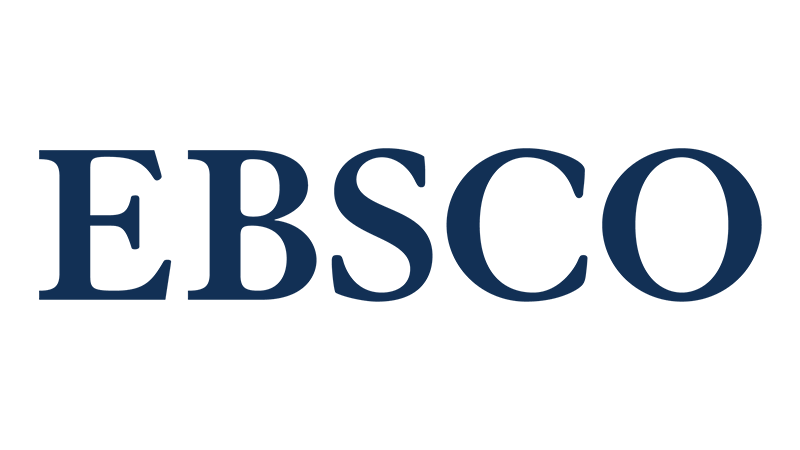
Publication Ethics and Publication Malpractice Statement
Business Review fully adheres to the policies and principles of the Committee on Publication Ethics (COPE). The journal maintains a rigorous peer-review process and adheres to strict ethical standards to ensure the publication of high-quality scientific research in the field.1. Responsibilities of the Editor and Editorial Office
- Journal Ownership and Management
The journal is owned by the Institute of Business Administration, Karachi (IBA), and is managed by the editorial office, which oversees the pre-publication and post-publication processes and all related matters.
- Publication Decisions
The editor makes the final decision on accepting, rejecting or demanding alterations to the manuscript. In doing this the editor will look at the legal requirements, copyright infringement and plagiarism aspects. Furthermore, the editor reserves the right to edit, clarify or shorten the manuscript as considered appropriate.
- Fair Review
The editor decides which manuscripts are suitable for publication solely on the basis of originality and quality. The decision does not take into account the race religious belief, gender, sexual orientation, ethnic origin, citizenship, or political philosophy of the authors. In order to maintain transparency, the editor along with managing editor use the electronic submission system for all communications.
- Confidentiality
The editor and any editorial staff should not reveal any information about a submitted manuscript to anyone other than the corresponding author, reviewers, potential reviewers, other editorial support providers, and the publisher, as appropriate.
- Conflict of Interest
The editor must not use unpublished material provided with the submitted manuscript for his/her own research, without the author's written consent.
2. Responsibilities of the Author
- Open Access Policy
Authors are required to agree with the open access policy which allows unlimited access and reuse of all published articles.
- Data Access and Retention
Authors may be asked to provide the raw data in connection with a paper for editorial review, and should be prepared to provide public access to such data, if required, and should in any event be prepared to retain such data for a reasonable time after publication.
- Originality and Plagiarism
The authors should ensure that they have submitted completely original works, and if the authors have used the work and/or words of others, then they have been acknowledged appropriately.
- Multiple Publications
An author submitting the manuscript in Business Review should not submit the same in other journal, unless the rejection decision is communicated to author/(s).
- Accountability
Authors should be accountable for all the work and should respond swiftly to any comments raised by the reviewers and the editorial team at any point of the process (pre and post publication).
- Authorship of the Paper
All those who have made significant contributions to the research study should be listed as co-authors. Others who have participated in certain substantive aspects of the research project should be mentioned in the acknowledgment section.
- Conflicts of Interest
It is imperative that the authors declare any conflict of interest that has an impact on their research and might influence the review process or publication in some way. Potential conflict of interest includes:
- An earlier connection between the editor and author
- A personal or financial interest in the research outcome
- Not disclosing receiving financial support by a third party.
When submitting the work, authors should write a note in their paper detailing if they have received any funding from third parties to minimize problems.
- Fundamental Errors in Published Works
When an author finds a significant error in his/her own published work, it is the author´s responsibility to immediately inform the journal editor and work together with the editor to retract or correct the discrepancies in the paper.
3. Responsibilities of the Reviewer
- Promptness
Any reviewer who feels unqualified to review a particular research paper or knows that its timely review (within 40 days) will be impossible should decline the review request and excuse himself from the review process.
- Confidentiality
Any manuscripts accepted and received for review must be treated as a confidential document. This must not be shown or discussed at any forum with others except as authorized by the editor. The editor has to seek prior permission from authors before authorization.
- Standards of Objectivity
Reviews should be conducted objectively and on merit. Personal criticism on the work of the author is inappropriate. Referees should provide their feedback and comments clearly with supporting arguments and extant literature.
- Acknowledgement of Sources
Reviewers should highlight relevant published work that has not been cited by the authors. Any statement that an observation, derivation, or argument had been previously reported should be accompanied by the relevant citation. A reviewer should also communicate to the editor any substantial similarity or overlap between the manuscript under consideration and any other published paper of which they have personal knowledge.
- Disclosure and Conflict of Interest
Unpublished materials disclosed in a submitted manuscript must not be used by a reviewer in his/her own research without the written consent of the author through Editorial office. Reviewers should not consider manuscripts in which they have conflicts of interest resulting from competitive, collaborative, or other relationships with any of the authors or institutions associated to the manuscripts.
4. Plagiarism Policy for Authors
Plagiarism is defined as presenting someone else's idea or words as your own, (i.e; without giving due credit to others work). It is crucial to ensure that the manuscript you submit has only your words and research. There are several forms of plagiarism:
Verbatim Copying: This form of plagiarism includes copying a section or a passage from another source without referencing it, using quotation marks or giving acknowledgment.
Paraphrasing: This includes changing either one or more sentence in the text or rearranging them without giving proper attribution.
Re-using parts of a work without attribution: This includes using figures, illustrations or tables without referencing, acknowledgment and quotation marks. As the author, it is your responsibility to obtain permission for the copyright.
Self-Plagiarism: The Business Review expects original content only; research may be repeated only if it leads to a newer or different conclusion. If any element of previously published research has been used, you must ensure that it is cited and referenced appropriately in the recent submission.
Handling Plagiarism
Plagiarism in all of its forms is a serious offense and is considered unacceptable. As such, it can have a negative impact on a researcher’s career. If we are approached by a third party regarding plagiarism, we will contact the author or copyright holders for an explanation before taking any action. Moreover, the Business Review (BR) will remain unbiased and not be influenced by the third party when making a final decision. In the event that instances of plagiarism are found at any stage, the BR has the right to reject or retract the paper and complain to the authors' institution. Read more about our plagiarism policy here.
Fabricated Data
It is a serious offense to fabricate and manipulate data for any purpose. At any point, the editorial office can request for data files or dataset to investigate. If, we suspect that the data is not authentic or has been manipulated, we will reject the paper and inform the institution, accordingly.
Manipulation of Images
Due to emergence of generative AI and AI-assisted technologies, images can be altered to get the desired appearance or to highlight or obscure a particular result or affect the interpretation of data. Such practice is unethical and can cast doubts on the credibility of research. All figures and images submitted to the Business Review should be minimally processed. If the editorial office finds evidence of manipulation, it reserves the right to ask for original data, figures and images. Moreover, the editorial office can also reject the paper and contact the authors’ institute if they feel necessary.
Making linear changes in the images such as brightening it or having some color contrast is allowed, although care should be taken that the settings are applied to the whole figure and not just one part. Moreover, change should be moderate to prevent changes in interpretation of result. Furthermore, cropping and resizing of the image is also allowed to fit the size of the journal page. The editor may at any time during the review process, ask for the original images as supplementary material and it will be made part of the electronic repository under 'Supplementary Content'.
Citation Manipulation
A research paper is incomplete without proper citations and references; however, it is crucial that the authors don’t indulge in the following behavior:
Self-Citation
Authors should cite their own work only where necessary. The references must enhance the quality of the paper in addition to adding value. Moreover, authors should refrain from including citations just for the sake of boosting their score, and international ranking.
Pushing Citations
This occurs when authors include unnecessary references solely to boost someone else’s citation score. This behavior is common among academics who aim to increase their citation score. The Business Review is strictly against this behavior and violation of this will be dealt with accordingly. In extreme cases, the authors' institution may also be contacted.
Coercive Citation
A reviewer might encourage you to refer to a paper in order to develop your research more effectively and improve on the existing idea. While these are legitimate ways to tweak your research, this should be done in moderation. The editorial office advocates author and editorial independence and if, at any point, you feel that you are being coerced to cite a particular paper, please inform us at businessreview@iba.edu.pk.
Authorship Criteria
Determining authorship can be a tricky process as the following issues can be faced:
- Gift/Guest Authorship: Including an author who hasn’t made significant contributions to the paper.
- Ghost Authorship: Excluding someone who has made significant contribution to the manuscript.
- Disputing the order of authorship i.e., who should be listed first, second etc.
Since such issues cause significant problems and lead to a potential retraction in the future, Business Review has devised guidelines for authorship as outlined by the International Council of Medical Journals Editors (ICMJE). These are:
- "Made substantial contributions to the conception or design of the work; or the acquisition, analysis, or interpretation of data for the work;
- Drafted the work or revised it critically for important intellectual content;
- Given final approval of the version to be published;
- Agreed to be accountable for all aspects of the work in ensuring that questions related to the accuracy or integrity of any part of the work are appropriately investigated and resolved."
Failure to meet even one condition will mean that the contributor cannot be listed as an author. Such people should instead be acknowledged. Activities that don’t qualify a contributor as coauthors are funding acquisition, supervision of research groups, editing of the text, and assisting in writing and proofreading. It is also crucial to get a written permission from people who will be acknowledged to avoid problems.
If authorship dispute arises, the editorial office will try its best to resolve the problem in a timely and professional manner. However, since most of these conflicts arise at the research stage, it is not always possible for members of the editorial team to discern who should be included. Therefore, we encourage the authors to discuss with their contributors before deciding on who can be listed as a coauthor. Likewise, Business Review expect that authors have sort out the above mentioned issues before electronic submission to the journal.
5. Appeals Process
The Business Review advocates editorial independence and will not counter any decision made by the editorial office, unless there is evidence that the article was not dealt with properly.
The author can appeal the decision if they believe that there has been a misunderstanding on the reviewers’ part or the editorial office. To launch a complain, you can follow this process:
- Submit the complaint in writing at businessreview@iba.edu.pk
- The complaint will then be judged by the editorial office
- It will be acknowledged within 10 working days and a decision will be reached within 60 working days
- Once the decision is made, it will be communicated to you and you may not appeal after that for the same manuscript.
Complaint about Editorial Management Team
If you feel that your article has not been managed properly by the team or there has been an unreasonable delay (more than 60 working days for initial decision), you can send an email to businessreview@iba.edu.pk. The team will make sure that your complaint has been dealt with properly and professionally. In return, we also ask that the authors treat the staff with utmost respect and courtesy. Harassment and abusing the staff will not be tolerated and the complaint may not be considered.
All complaints are treated very seriously and we aim to acknowledge the complaint within 10 working days and give a final decision within 60 working days.
Corrections
Research published shows a snapshot of a point in time and while the version cannot be updated to reflect any changes that might occur afterwards, for instance changing author affiliation or new findings, is not possible. Therefore, like many other reputed journals, Business Review also ask for ORCiD ID, so that interested readers can see the updated profile of authors.
Sometimes, research errors are made during the writing and publication stages and these need to be corrected. Although, final version of accpted paper is shared with the authors to check in its entirely, before making it online and/or sending to press. But then also we will deal with such issues in the following way:
Erratum
This refers to the error that occurs during the publication process. The erratum will appear on the abstract of the online paper.
Corrigendum
This error occurs when there is an overlook made by the author before submitting the paper. Like the erratum, the corrigendum will also appear online on the abstract of the paper.
Changing Authors’ Name
The Business Review is implementing a name-change policy. Effective immediately, if any author wants to change their name because of marriage, divorce, religious conversion or any other reason, they can contact the editorial team. We will try our best to change the name throughout the article. However, Business Review may ask for proof of change in the name for record purposes of Editorial office.
Retraction Notice
Where the research is considered to be seriously misleading and flawed, a retraction notice will be issued by the editor, which will appear online. The notice will contain explanations for why the paper was retracted and how the misconduct and error impacted the findings of the paper. The editor might also contact members of the editorial board or external reviewers to come to a decision.
Expression of Concern
Where ethical allegations have been made and we are not able to come to a decision quickly, the editorial office will issue an Expression of Concern (EOC) to let the authors know that the investigation is still going on. If the editorial committee is unable to come to a conclusion because of lack of information, the EOC will be issued and appear on the online version.
The Usage of AI Tools
In accordance with COPE’s policies, the Business Review would like to clarify that AI tools such as ChatGPT cannot be listed as coauthors as they are not capable of conceptualizing research design and also cannot be held accountable for validity and originality of the results.










